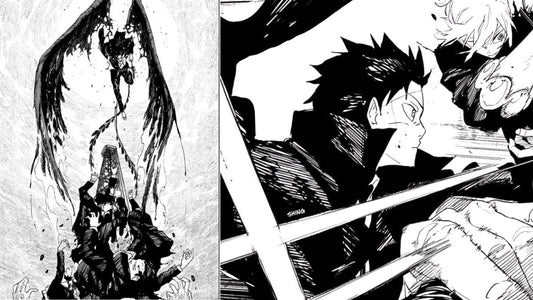
Space Battleship Yamato's 50-Year Legacy: A Trailblazer in Sci-Fi Anime and Global Influence
Jared JohnsonShare
Revisiting a Space Opera Classic: Space Battleship Yamato Turns 50
The 50th anniversary of Space Battleship Yamato—released in 1974 and a seminal work in the anime space opera genre—invites reflection on its lasting influence and pioneering contributions to anime storytelling. Not only did it revolutionize how narratives were constructed in anime, but it also played a pivotal role in bringing Japanese animation to Western audiences.
Breaking New Ground in Storytelling
Space Battleship Yamato, created by Yoshinobu Nishizaki and directed by Leiji Matsumoto, is set in a dystopian future where Earth is under threat from the alien Gamilas. What made this series revolutionary was its serialized storytelling approach—something quite rare at the time—which allowed for deeper character development and more intricate plots. Similar to contemporary narrative-driven series, each episode was integral to understanding the complete storyline, fostering intertwined dramatic arcs that captured viewer attention.
Moreover, this series advanced the realism in depicting the impact of war. As characters faced loss and hardship, the themes resonated with mature audiences for their poignancy and depth, showcasing complexities of conflict and cooperation amidst adversarial backdrops.
Influences on Subsequent Anime
Space Battleship Yamato opened doors for many subsequent genres, notably inspiring the iconic Mobile Suit Gundam franchise. It introduced realism through its "Real Robot" subgenre, which had tangible stakes and character development molded by their wartime experiences—direct concepts that trace back to Yamato. The interplay of allies and enemies marked a hallmark that translated into other series, including Macross, which explored similar narrative transformations of villainy and alliance.
This focus on psychological depth and narrative complexity laid the groundwork for future ambitious works such as Neon Genesis Evangelion, which further pushed the envelope into psychological and philosophical frontiers. Such works resonate with the thematic lineage that Yamato initiated, of presenting anime as a medium for sophisticated storytelling.
Cultural Significance in Japan and Globally
In Japan, the impulse of Space Battleship Yamato cannot be overstated. The historical connotation of the Yamato battleship imbued a sense of national pride, resonating with audiences across generations. Its cultural relevance is underscored by continual remakes and adaptations, like the Space Battleship Yamato 2199 series, which revitalize and reinterpret the original themes for new audiences.
In the West, Star Blazers was the localized adaptation that aired from 1979, pioneering serialized anime viewing in the U.S. That structured serialization was novel stateside, as was the mature handling of thematic material, contrasting sharply with the more lighthearted or episodic animated shows available at that time. For many, it marked an awakening to the potential depth of animated storytelling, opening the gates for anime to gain influence and popularity in Western culture.
Lasting Legacy and Reflection
Reflecting on the legacy of Space Battleship Yamato, it is clear that it set foundational elements for future narratives in anime, not just within space opera but across genres. The series underscored thematic storytelling, character complexity, and interwoven narrative arcs—concepts that now form the bedrock of many popular anime series today.
The contribution of Space Battleship Yamato in shaping the anime landscape holds profound significance. It begins with its storytelling innovations and is echoed through its enduring cultural and international influence. As the series marks its 50th year, these achievements are celebrated not just in tribute to its past but in recognition of its ongoing inspiration. Such remarkable depth and exploration pioneered by Yamato continue to resonate, further cementing its stature as one of the most important anime series of all time.



